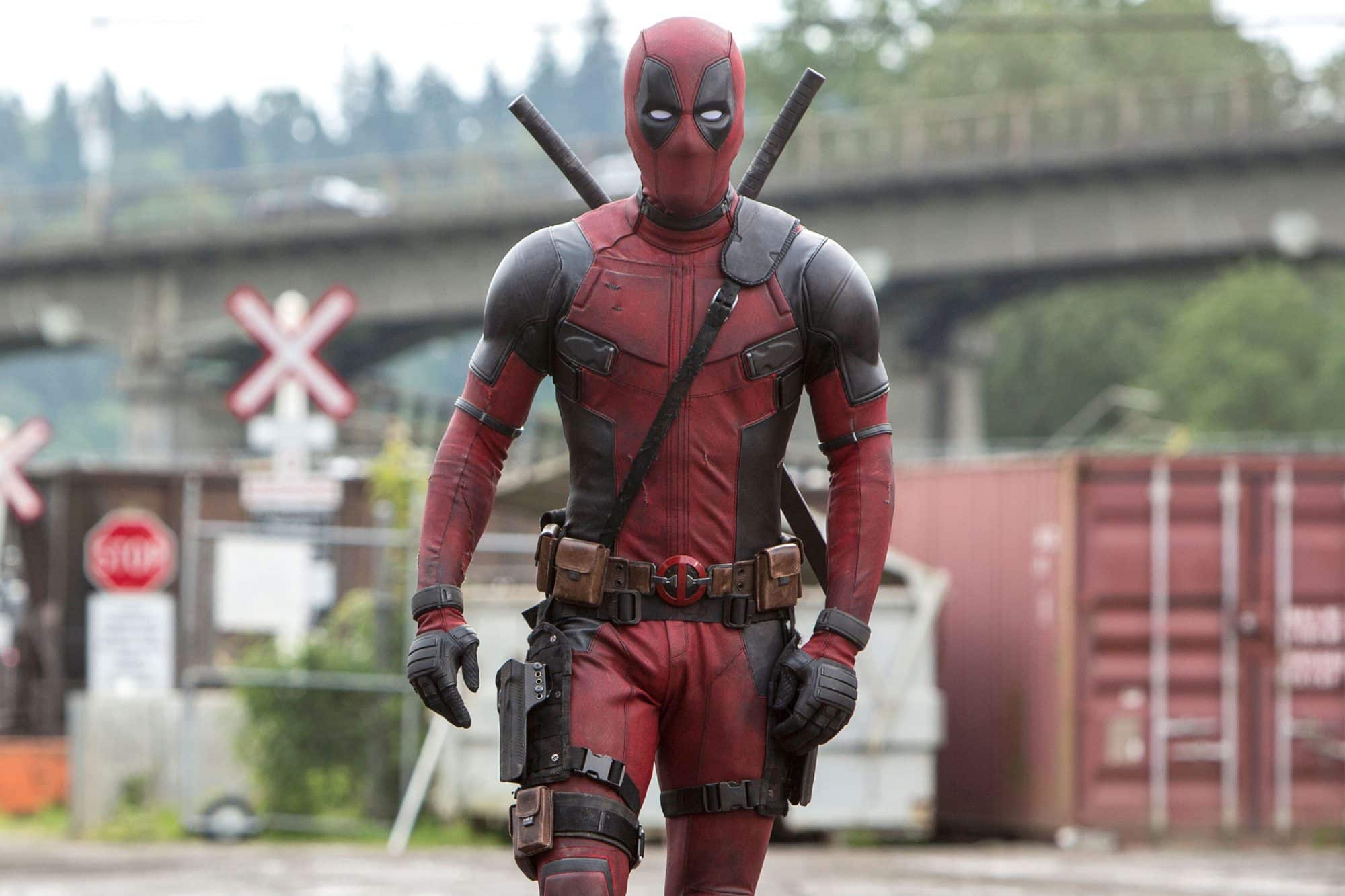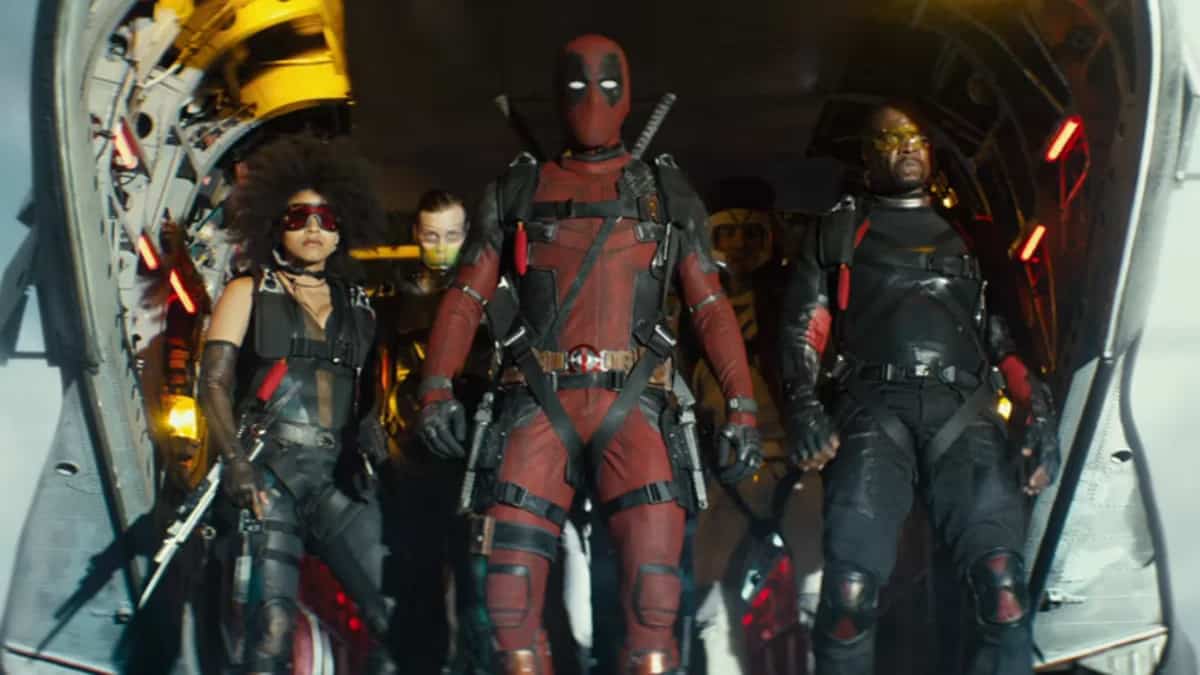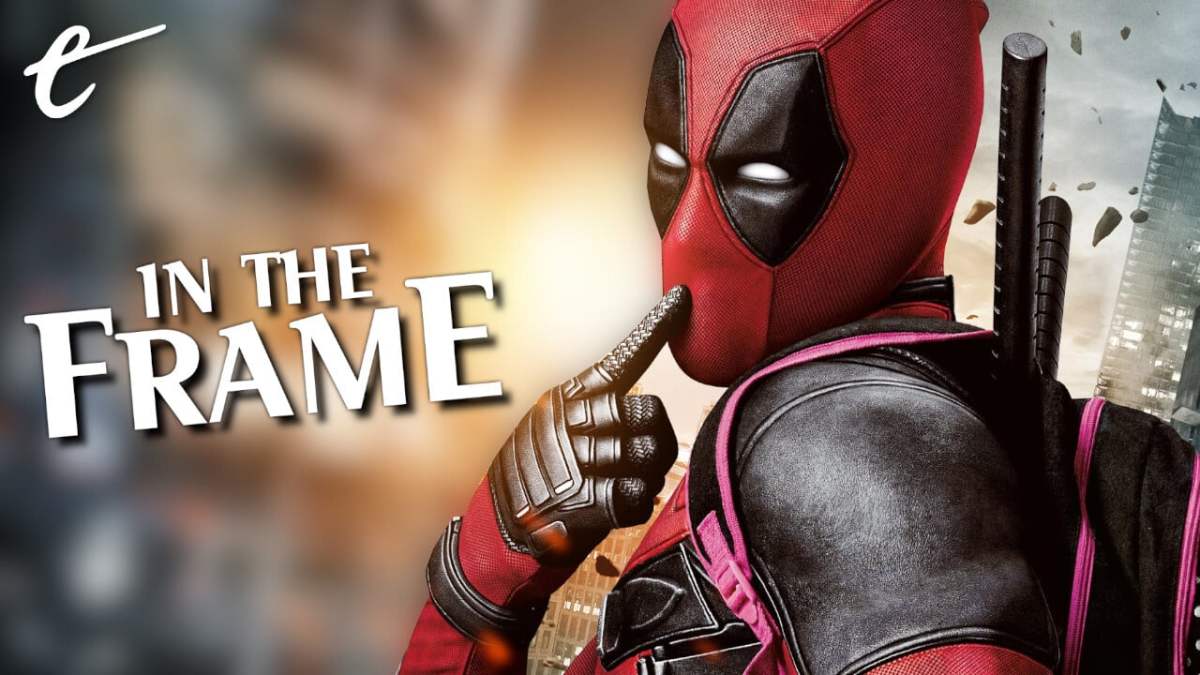The original Deadpool opened just about five years ago, so it seems like a good time to look back at the two movies.
The two Deadpool movies tend to attract attention as superhero comedies or deconstructions, but that’s not entirely accurate. Both Deadpool movies are funny and self-aware, but they are not primarily comedies nor are they especially subversive. Deadpool doesn’t treat the superhero movie the same way that Blazing Saddles approaches the western, mocking and exploring the genre’s place in American pop culture. Indeed, The Boys is a more pointed deconstruction of the superhero genre.
Instead, what’s most interesting about the use of humor and irony in both Deadpool movies is the way in which the films use irony and humor as camouflage for nostalgic throwbacks to old-fashioned action movies. Deadpool constantly breaks the fourth wall and winks at the audience, but only in a way that assures viewers that the film is “in on the joke.” It’s an approach that allows the film to employ a host of old-fashioned tropes, covering familiar clichés with a patina of irreverence.
Deadpool arrived in cinemas in February 2016, a few months after Avengers: Age of Ultron set the boundaries of the Marvel Cinematic Universe. Marvel had established itself as a dominant cultural force, but there was an effort to create the impression of some diversity in genre among the films. Promoting Captain America: The Winter Soldier in April 2014, the Russo Brothers called it a “political drama.” Kevin Feige had been selling Ant-Man as a “heist movie” since at least October 2013.
In truth, the Marvel Cinematic Universe had a consistent look and sound. There were exceptions, like Thor: Ragnarok or Guardians of the Galaxy, but generally Marvel Studios films adhered to the template that the studio had established and to which other franchise films – like Jurassic World or Terminator: Genisys – would aspire. This is why WandaVision’s embrace of television as a medium and sitcom as a genre is so refreshing. It’s rare for a Marvel Studios film to actively embrace genre.

Although Deadpool is a Marvel character, his film rights were controlled by Fox, the studio responsible for the X-Men films. Fox was obviously trying to emulate the Marvel Studios model using the properties that it controlled, but it never succeeded on these terms. The studio’s best efforts to reproduce the Marvel formula led to the disastrous X-Men: Apocalypse, to the point that the idea of sending the X-Men to the MCU was deconstructed in Dark Phoenix.
Fox’s early approach to its superhero properties was to wed superhero elements to familiar narrative frameworks, rather than treating a superhero movie as a genre unto itself. Bryan Singer explicitly modeled the structure of X2 on The Empire Strikes Back. The inevitable Wolverine-centric solo movie X-Men Origins: Wolverine had less in common with superhero origin stories like Iron Man, Thor, or Captain America: The First Avenger than it did with old dumb action films.
For all the disdain that the Deadpool films have for X-Men Origins: Wolverine, Deadpool shares the same basic plot structure. Like Logan (Hugh Jackman), Wade Wilson (Ryan Reynolds) is manipulated into volunteering for a secret experiment that turns out to be an effort to build human weapons. Both Logan and Wade set out for revenge. Both Deadpool and Wolverine are notable within the superhero genre for the emphasis they put on their hero’s love interest as emotional leverage.
Deadpool leans heavily into nostalgia for the action movies of the 1980s and early 1990s. The soundtrack is saturated with 1980s hits; Deadpool opens with Juice Newton’s “Angel of the Morning” while Deadpool 2 opens with Air Supply’s “All Out of Love.” Many of Deadpool’s own references draw heavily from the era, notably how he describes Negasonic Teenage Warhead (Brianna Hildebrand) as “Sinéad O’Connor” or “Ripley from Alien 3.” (She sighs in response, “Fuck, you’re old.”)
Even outside of dialogue and soundtrack, the film draws heavily from the cinematic language of the action movies of the era. The film opens in media res, with Wade assuring the audience that they are joining the story late. The action freezes, like an update on the classic 1980s movie cliché, as he explains that “to tell it right… I gotta take you back to long before I squeezed this ass into red spandex.” It’s a riff on the “Yup, That’s Me” meme, combining a variety of familiar tropes.

Outside of Negasonic Teenage Warhead, action in the original Deadpool is driven by knives, swords, and machine guns rather than the repulsor blasts, lightning bolts, and specialty projectiles favored by contemporary superhero movies. The villains of Deadpool are not conspirators or terrorists or extremists, but instead mercenaries like those featured in Lethal Weapon and Commando. Ajax’s (Ed Skrein) superpower is that he feels no pain, recalling Mr. Joshua (Gary Busey) from Lethal Weapon.
Colossus (Stefan Kapičić), the movie’s featured X-Man, also reflects this retro 1980s aesthetic. Colossus is foreign, recalling action stars like Jean Claude van Damme or Arnold Schwarzenegger. He’s also muscled in the way that older action stars tended to be, like Sylvester Stallone or Jesse Ventura. He provides a contrast to the more contemporary macho bodies of Reynolds and Skrein, who reflect the more modern ideals of male musculature codified by Brad Pitt in Fight Club.
However, it’s not just the bodies — it’s what Deadpool does with them. Much was made of the movie’s R rating, which was seen as controversial for a post-MCU superhero movie. However, Jessica Ritchie astutely tied it back to “the Golden Age of the R-Rated Blockbuster,” including the films of writers like Shane Black or directors like Paul Verhoeven. This throwback aesthetic is most obvious in the emphasis placed on the relationship between Wade and his girlfriend Vanessa (Morena Baccarin).
One of the more interesting consequences of the modern superhero boom has been the almost complete erasure of sex and sexuality from the modern blockbuster. “There are many, many movies about superheroes,” observed director Pedro Almodóvar. “And sexuality doesn’t exist for superheroes. They are neutered.” He is not wrong, but with its R-rating, Deadpool most certainly was not neutered – one of the movie’s most charming sequences is an extended sex montage.

Not all the throwback elements are appealing. The climax of Deadpool hinges on Ajax using Vanessa as leverage over Wade; Vanessa spends the climax trapped in a glass case. Deadpool 2 kills Vanessa early in the runtime, turning her into a woman in a refrigerator to motivate Wade’s character arc. To their credit, most modern superhero movies avoid this sort of plotting. (Iron Man 3 may be the exception, perhaps reflecting that it was written and directed by 1980s action veteran Shane Black.)
All these elements establish Deadpool and Deadpool 2 as deliberate throwbacks, to the point that the plot of Deadpool 2 is basically a riff on The Terminator. However, the Deadpool movies get away with this by using ironic humor to inoculate them against any perceived criticism of their throwback elements. To pick an example, the closing credits of Deadpool 2 resurrect Vanessa, reversing the movie’s fridging and complicating criticism of it. It becomes Schrödinger’s Fridge.
More to the point, the humor allows the Deadpool films to have their cake and eat it. Deadpool features an action montage like those in Over the Top, Bloodsport, The Karate Kid, and Rocky IV, which is an old cliché, but the film is jokey enough that it can get away with it. Sure, the character’s rap theme song is a spoof of similar songs in Monster Squad, A Nightmare on Elm Street 4: The Dream Master, and Ghostbusters II, but it’s still a rap theme song.
The Deadpool movies are nowhere near as iconoclastic or irreverent as they appear. Indeed, despite his protestations that he is “just a bad guy who gets paid to fuck up worse guys,” Wade is introduced as a man with “a soft spot” for protecting teenage girls from their stalkers. Instead, the Deadpool movies use humor and irony as a mechanism for smuggling classic action movie tropes into cinemas within the trappings of familiar superhero genre elements.
That said, given the ubiquity and hegemony of the modern studio action blockbuster formula, perhaps that is an act of subversion of itself.





